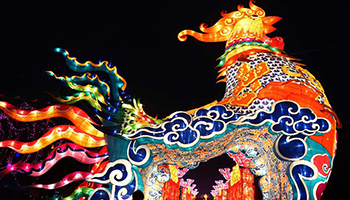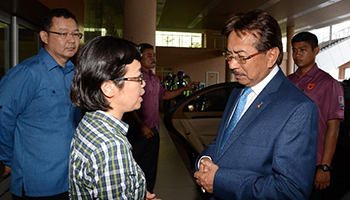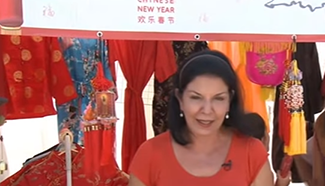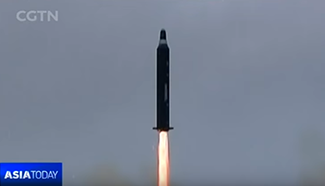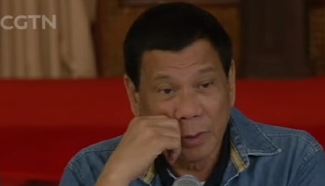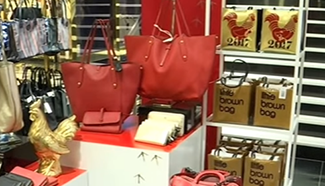by Gui Tao, Larry Neild
LONDON, Jan. 31 (Xinhua) -- A British think tank involved in Japan-funded propaganda against China was "notoriously partisan" and "extremely keen to attack," a leading British expert on Chinese affairs said late Tuesday.
The comment came after the Sunday Times newspaper released a detailed report on Jan. 29, accusing the Henry Jackson Society (HJS) of being paid by the Japanese Embassy in London to hype up the China threat in Britain and spread propaganda that might damage China-Britain relations.
The society was "notoriously partisan, very right wing, and extremely keen to attack," said Kerry Brown, a professor of Chinese studies and director of the Lau China Institute at King's College London.
"It is not really very reassuring that any government would be giving funds in this way. But for Japan to be spending money on an organization like this which has such a clear, antagonistic posture, is very surprising. I suspect the only people who will be reached by this are those who are already decided in their minds," he said.
The Sunday Times reported that the Japanese Embassy in London had paid the think tank 10,000 pounds (12,570 U.S. dollars) per month to spread anti-Chinese propaganda, including through public figures like former British Foreign Secretary Malcolm Rifkind, a former Conservative MP in the British House of Commons who also served as chairman of the parliamentary intelligence and security committee.
An official with the Japanese Embassy in London acknowledged on Monday morning that it had received an inquiry letter from Xinhua seeking confirmation and comments on the Sunday Times report, but failed to reply so far.
A spokesman from HJS told Xinhua on the same day that "We can never reveal specific details."
The British media said that the paid deal to smear China was reached to counter growing cooperation between China and Britain.
Last March, the HJS hosted a meeting at the Houses of Parliament to discuss "Maritime Security in Asia: Chinese Sea Power and the East China Sea, a Japanese Perspective."
The meeting was chaired by Julian Knight, a Conservative MP for Solihull in the west Midlands, who had earlier visited Japan at the expense of its foreign ministry.
The Japanese ministry paid a total of 10,867 pounds (13,660 dollars) for the MP's flight, accommodation and subsistence from Feb. 13 to Feb. 20, 2016, according to official records at the Westminster. Knight claimed the purpose of his visit was to gain an insight into Japanese affairs, including defense.



